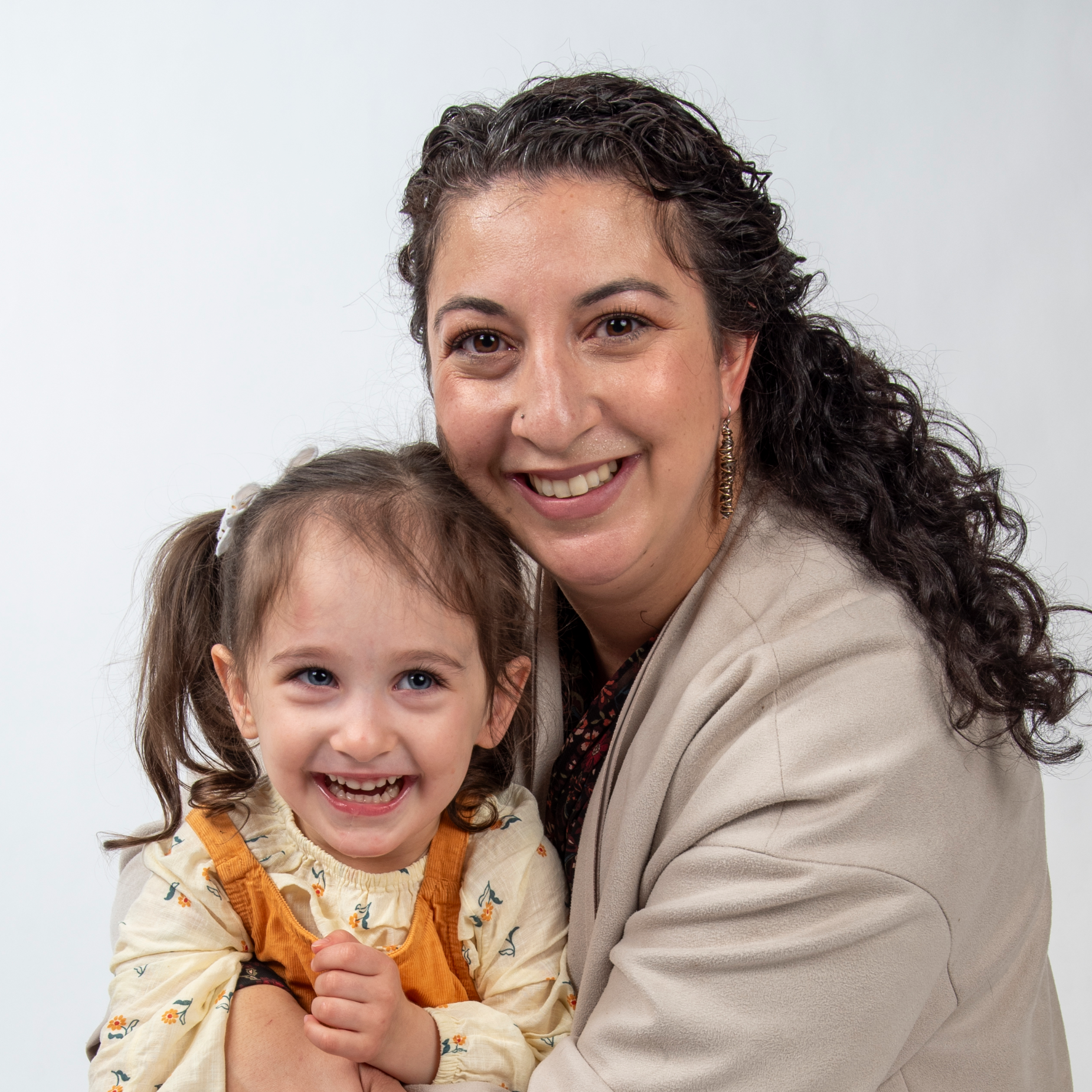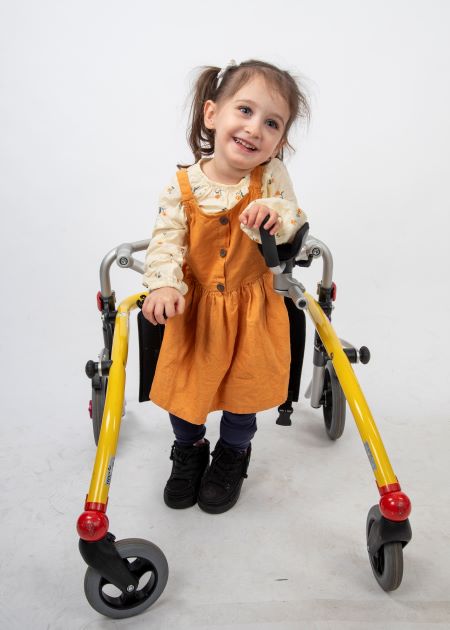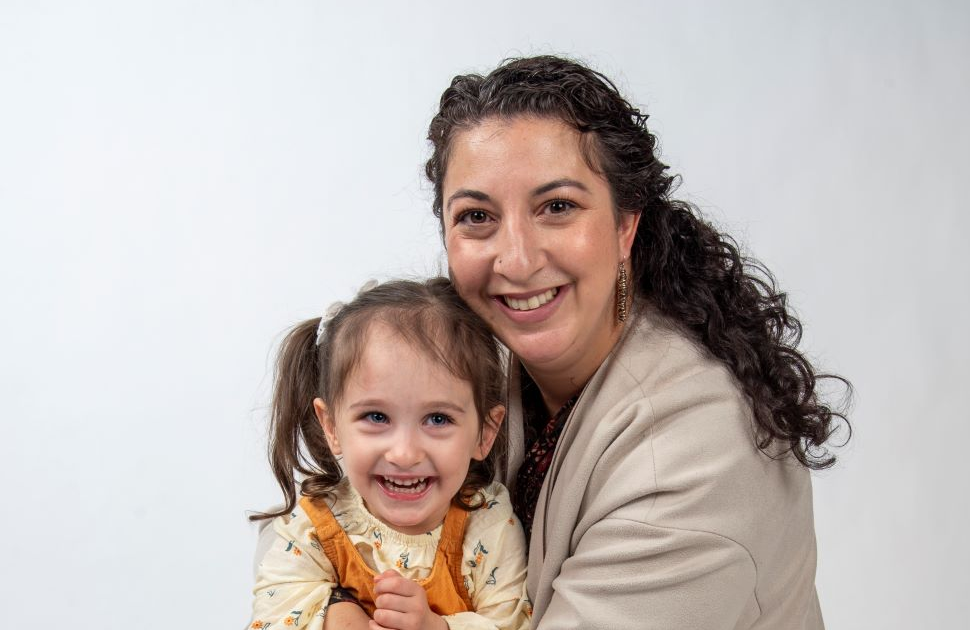
Hazel Radley’s development has taken some big steps thanks to participating in research at CHEO.
Now 4, Hazel was diagnosed with quadriplegic cerebral palsy at seven months old. She normally uses a walker but recently took part in a research study using the Trexo robotic walker.
Her mother, Melanie Radley, said participating in the CHEO research study helped build up Hazel’s strength as she was required to use the Trexo robotic walker for about 45 minutes per day.
“It's incredible how life-changing this research is for kids. It makes such a big difference,” said Melanie, referring to studies investigating innovations and technology. “I feel so much hope for all kids with disabilities.”
 The research also included play-based physiotherapy that took place at the family's home and included Hazel’s toys, which was a major convenience.
The research also included play-based physiotherapy that took place at the family's home and included Hazel’s toys, which was a major convenience.
Families are at the heart of research at CHEO, which is why CHEO is launching the Research Connection program.
This program will link more children, youth and families to valuable research opportunities to improve equity and access to research, which ultimately improves the quality of research findings and can lead to better care and health outcomes for children and youth at CHEO and beyond.
As of Feb. 1, 2025, all CHEO patients aged 21 and younger will be automatically included in the Research Connection program, which means they could be contacted directly by an approved researcher to learn more about a research study they may be eligible for.
Before Research Connection was introduced, research teams needed someone from a patient’s direct circle of care – like doctors, nurses or therapists – to ask the patient or family if a researcher could contact them to tell them about a research study.
This naturally created obstacles that limited access and awareness of research opportunities, and it added to a full mental load for busy health-care providers.
Researchers also flagged a lack of equity because families who lived further from CHEO, visited in person less often, or who required less follow-up care could be underrepresented in research studies under the previous recruitment process.
“Not only is it bad for our research ... it's also bad for those kids who don't get a chance to participate,” said Michelle Larin, research coordinator at the CHEO Research Institute.
Research Connection allows approved researchers to contact families directly either by phone call, MyChart notification or in person during a visit to ask if a patient or family wants to learn about a research study opportunity.
Families can then choose to say yes or no to learning about the study, and whether or not to participate, on a study-by-study basis without any effect on the care received at CHEO.
“You're only going to gain. Maybe it's a small gain and maybe it's a big gain, but you don't know until you try,” said Melanie Radley.
"It's only going to benefit kids now and in the future.”
All new CHEO patients who receive care after Feb. 1, 2025, are automatically enrolled in Research Connection after their first appointment, unless they choose to withdraw.
"Research Connection is really allowing us to put research forward to families at a time and place that is convenient to them to really digest and understand the information,” said Larin.
"We wouldn't have clinical best practices if we didn't have the research,” said Larin.
To learn more about Research Connection, including a video explaining the program, frequently asked questions, and a form to withdraw from the program, please visit the website.





